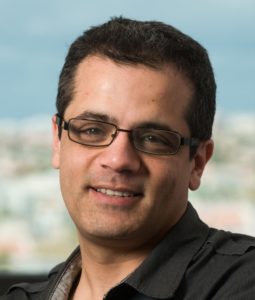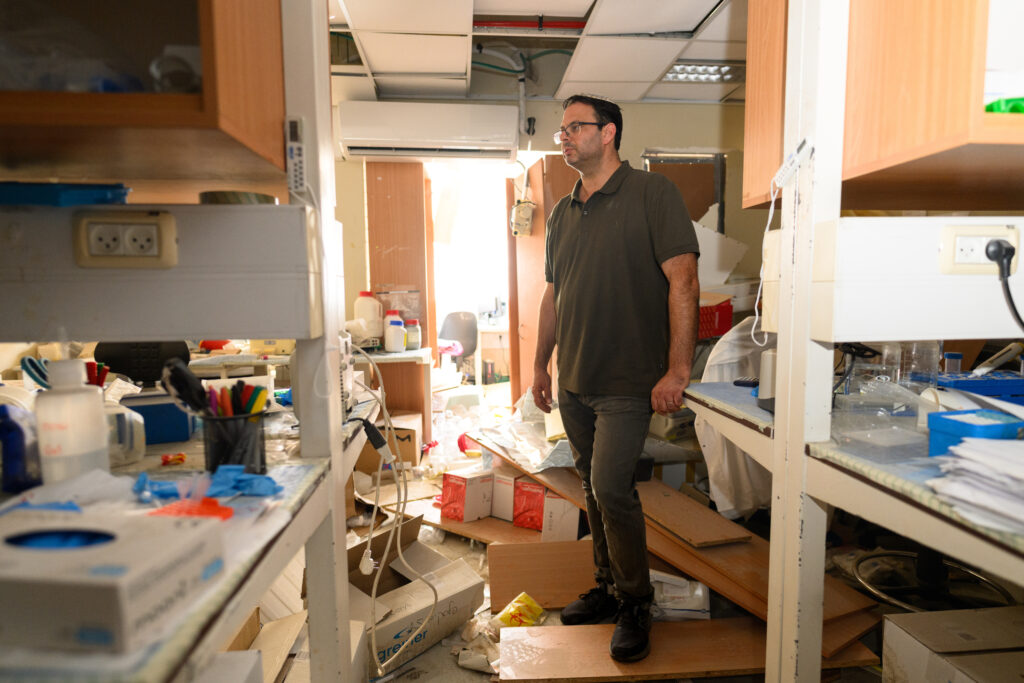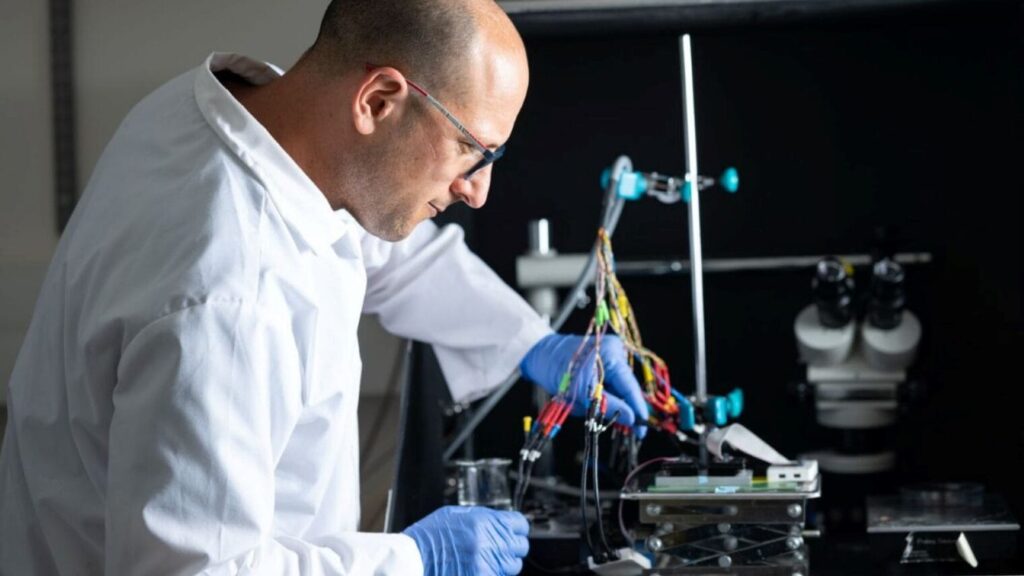
BGU Innovation Treats the Sick
November 26, 2018
Medical Research, Robotics & High-Tech
The Jerusalem Report – Technology is transforming the medical field, and artificial intelligence (AI) is enabling medical technology to advance at an increasingly rapid pace.
Already, hospitals around the world are benefitting from Israeli medical technology. But when it comes to AI – including deep learning and machine learning – researchers say there is much more ahead from the “Start-up Nation.”
Prof. Yuval Shahar, director of BGU’s Medical Informatics Research Center, says that if he had it his way, AI would reduce those going to the ER.
Prof. Shahar’s research team developed MobiGuide, a user-friendly mobile solution based on clinical guidelines and personal health records. The system provides personalized evidence-based clinical recommendations, increases patients’ compliance to guidelines and reduces health care costs.
Traditional clinical decision-support systems target the care providers and see their role as providing decision-support at the point of care during patient-physician encounters. In contrast, MobiGuide interacts with both the patient and his or her care provider.
It delivers health-related recommendations and provides access to the patient’s health data whenever a need arises, from anywhere, using web and smartphone interfaces. The clinical data is acquired using wearable and portable monitoring.
“If a pregnant woman has high blood pressure, a home test would monitor it,” explains Prof. Shahar. “If the machine notices a change in her tests, it might send her a recommendation, such as, ‘Start checking your blood pressure six times per day instead of three,’ or if she has gestational diabetes, it might ask her to take an at-home test to measure ketones in her urine.”
In addition, her physician would be alerted appropriately. For example, the doctor might get a note saying, “You cannot leave her at home on her current medications,” if a cardiac arrhythmia was reported.
Prof. Shahar says MobiGuide – coordinated in conjunction with his colleague from Haifa University, Prof. Mor Peleg, and 13 partners from five European countries – has been running for four years in Italy and Spain as part of a $7 million project funded by the EU.
This is the first AI project to include completely automated, closed-loop monitoring and management of chronic patients, specifically heart patients with arrhythmias in Italy and pregnant women with gestational diabetes or hypertension in Spain.
“The EU, like most of the Western world, is facing a huge crisis with 25 percent of its population entering retirement age, when most chronic disorders – diabetes, heart disease, cancer – develop,” says Prof. Shahar.
“This will cost the system billions, and we won’t have enough medical personnel to treat all the patients effectively. The solution is to use a system like MobiGuide to transfer the physicians’ knowledge to computers and provide much cheaper and likely better medicine.
“If you need to go to a clinic, the system or your physician would send you there, but in 80 percent of situations, the person does not need a clinic and can handle the situation at home according to some protocol your own physician would have used had you gone to him.”
MobiGuide also helps disseminate best practices by allowing physicians to enter findings that would then be automatically distributed to anyone using the system.
Prof. Lior Rokach, chair of BGU’s Department of Software and Information Systems Engineering, is also tackling new AI projects in the medical sphere. He recently worked with Asaf Achiron of Holon’s Wolfson Medical Center to develop a database of nearly 20,000 laser eye surgery patients to build a predictive model that would inform physicians if such a surgery would ultimately be effective.
“There is a very long list of medical parameters checked on each patient before doing surgery and we know the outcomes,” Prof. Rokach explains. “Although the surgery is successful in almost all patients, some two percent fail. The idea was to find out if we can predict if it will fail.”
Prof. Rokach aims to make this prediction model available online so physicians can check the likelihood of success for their patients and advise them more effectively.
He says that the biggest revolution in the AI-medical arena will be in radiology. Right now, machine learning has vision capabilities that can analyze CT and X-ray scans very efficiently, often better than a human physician. This could allow patients to get their results in minutes. The constantly improving technology should allow doctors to identify high risk patients earlier and optimize work list prioritization for urgent cases.
“Many people ask whether AI will replace physicians,” Prof. Shahar says. “Not for at least 50 years,” he muses.
He explains that while computers are faster and can learn more effectively from the mass amounts of clinical data being collected, there are just as often cases outside of “protocol.” For instance, a computer can inform a physician that there might be an adverse reaction between two medications.
But what if the patient needs both? A physician must decide.
“I don’t think such value judgments should be left to computers,” says Prof. Shahar.





